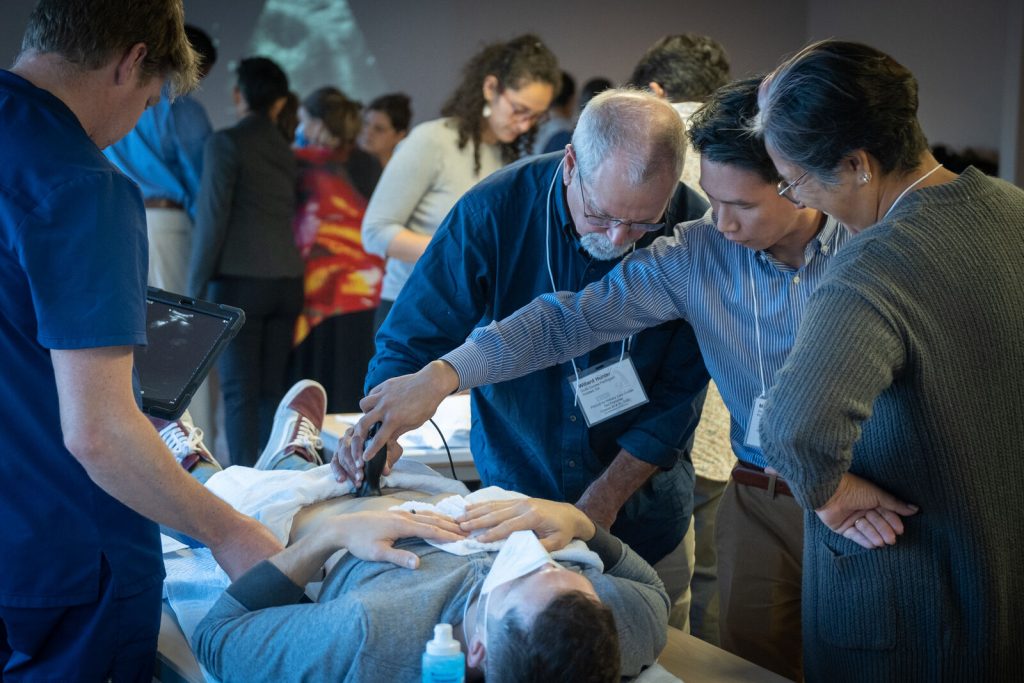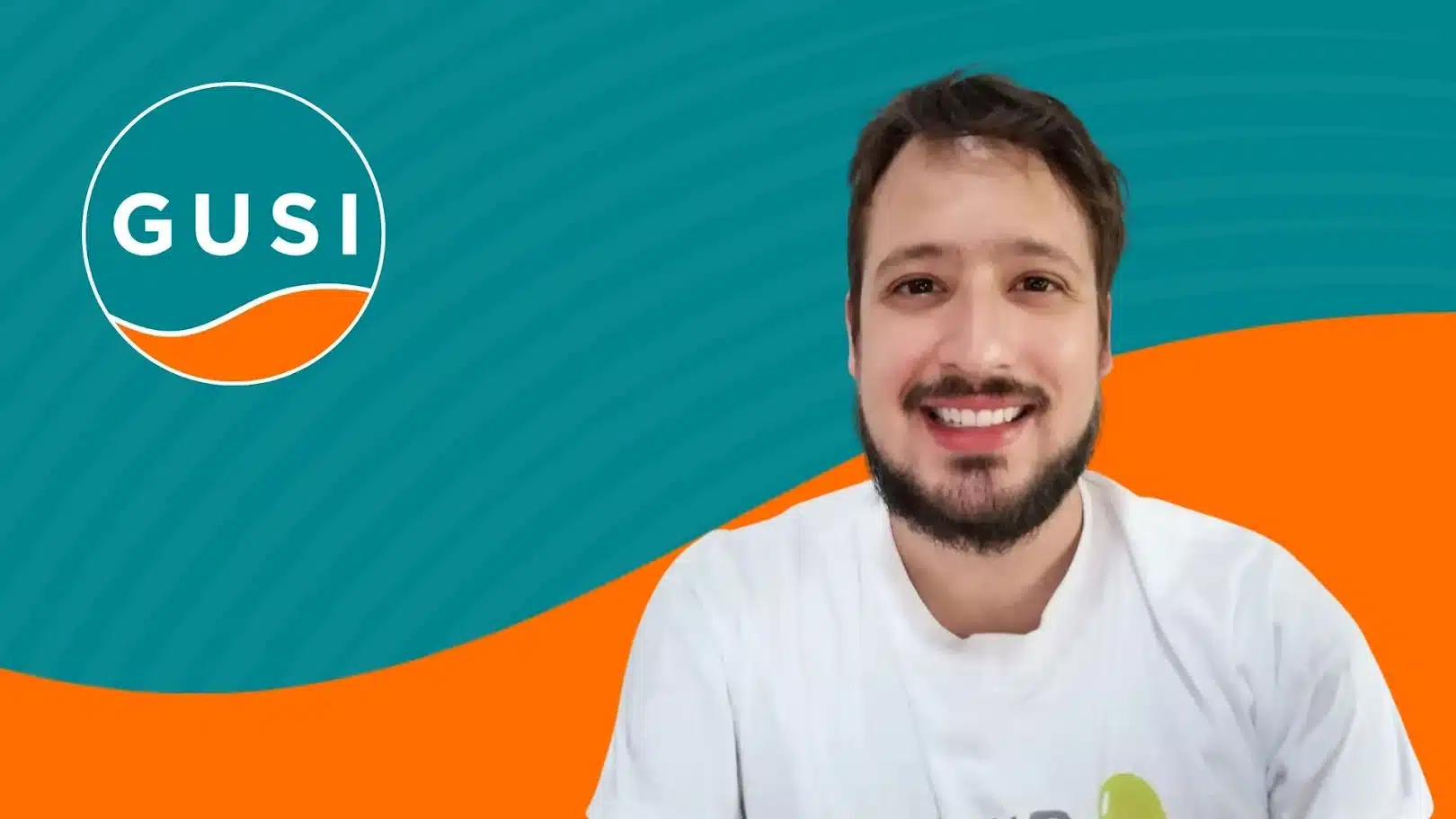As learners in medical school and postgraduate training are preparing to start a new year and new role, let’s take a look at the process of beginning to learn POCUS.
Over time, we’ve covered systemic and cultural barriers to POCUS adoption. In addition to these larger factors, it’s important to acknowledge that as individuals we experience resistance to forming new habits. You may often think “I want to learn POCUS” but feel nervous about asking basic questions or overwhelmed by all that’s already on your plate.
Whether you’re a new learner barely familiar with an ultrasound probe, an intermediate user hoping to integrate POCUS further into your clinical routine, or an experienced POCUS user looking to deepen your mentoring capacity, we hope this article gives useful tips and sparks some new ideas.

Tara Ahmadi, MD:
PGY2 at Swedish Family Medicine Residency
New learner perspective:
“I love POCUS because it’s a non-invasive way of knowing what’s happening with your patient. It’s so satisfying to be able to share information with patients in real time. However, using the ultrasound probe is not intuitive for me. Sometimes when people are talking about ultrasound images, I feel silly because I can’t see what they see on the images. In medical school, POCUS didn’t feel attainable or accessible to me. It was expensive, and only a few people knew how to do it. In residency, we are being taught basic skills, but I don’t know how to get to the next step. And yet, learning POCUS is incredibly important to me, and scanning patients is something that I enjoy and look forward to. In POCUS mentors, I look for someone who I feel comfortable asking questions to and can be vulnerable with, and someone who takes the time to teach and guide me. I also want someone who will keep me accountable.” (Response condensed and edited)
Habit formation
POCUS shares many similarities with habits like going to the gym. You need to get the reps in to build your POCUS muscles. Fortunately, you can use the science of habit formation to help you form a strong POCUS habit. Here, we borrow from James Clear’s bestselling book Atomic Habits and his corresponding website:
- Link your habits to the type of person you want to be (e.g. an excellent clinician uses POCUS), and think of implementing your habits as casting a vote for that type of person (every time I pick up a probe/learn more about POCUS, I am affirming that I am an excellent clinician)
- Set specific implementation intentions, ideally linked to what you already do (i.e. – not just “I will learn POCUS” but “I will ultrasound at least one patient per day before I order formal imaging, and compare the results”)
- Optimize your environment to make your habit easier (for example, ask your MA in clinic to room the ultrasound with patients, or take your probe with you on hospital rounds)
- Identify areas of friction and plan or how you’ll make things smoother (see more below)
- Identify external rewards (e.g. every five scans, I’ll treat myself to X)
- Track your habit (e.g. by uploading to the GUSI platform, through a GUSI fellowship, journaling, or checking in with an accountability buddy)
The Atomic Habits website and book include practical, in-depth explanations of how to break down habits into bite-sized elements, and step by step details so you can translate your intentions into reality.
As you can see, structure is an incredibly important part of habit formation. GUSI workshops, online courses, fellowships and quality assurance can be incredibly important in forming a structure to kickstart your POCUS habit. Even with this support, the most important element of the process is the time you spend with your hands on a probe, scanning. Building your own intentions and structure for maximizing your scanning time takes effort, but is well worth it!
Barriers and solutions
In addition to harnessing the science of habits, here’s a deeper exploration of the concerns we frequently hear from new learners, and some strategies to address them.
| Perceived Barrier | Solutions |
| I don’t have time to scan | Figure out in advance how you will incorporate POCUS into your clinical routine, knowing that once it’s an established habit, it will take less time. For example:
|
| I don’t like feeling like I don’t know what I’m doing | Neither do we! Some ideas:
|
| I’m a learner and my attendings/ supervisors don’t know POCUS | Of course it’s easier when your supervisors know POCUS, but still possible if they don’t:
|
| I don’t have mentors / support at my institution |
|
| I worry that patients will expect me to give diagnoses when I scan, or I don’t want to bother them by asking them to scan | We’ve found that patients are almost always happy to help with education, and often enjoy the opportunity to give back. People generally like to be scanned and see inside their bodies. It’s important before beginning to make sure they understand whether the scan is expected to aid in diagnosis/management or whether it’s purely educational. If you’re uncomfortable asking patients, try practicing a script that sounds natural for you. For example: “I’m learning how to do bedside ultrasound. Could I take a few minutes to scan you today, as part of my learning process?” And if applicable: “This would be an educational experience and I’ll talk you through what I’m doing, but I won’t be able to give a diagnosis based on this scan” |
| I don’t even know where to start | We often find that learners are inspired by GUSI courses, especially in-person. This provides them with inspiration and a foundation to cement new habits. |
Closing thoughts:
Learning new skills can be tough! Be kind to yourselves. And be kind to new POCUS learners. And although we’ve focused on the tougher parts, it’s important to recognize why POCUS is worth it: transforming your practice by enabling critical in-the-moment diagnostic and management decisions, increasing efficiency, and deepening the patient-doctor connection and the meaningfulness of your work.
Do you have thoughts or questions about what it means to be a beginner POCUS learner? Contact us – we’d love to hear your perspective!



